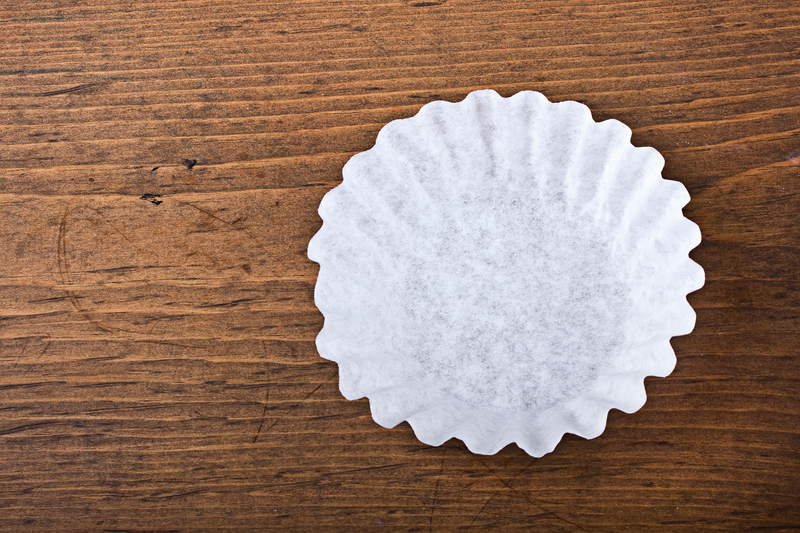Renewed Interiors: Mastering Carpet & Hard Floor Cleaning
Posted on 22/09/2025
Renewed Interiors: Mastering Carpet & Hard Floor Cleaning
Are you dreaming of stunning, renewed interiors that leave a lasting impression? The secret often lies beneath your feet. Whether it's plush carpeting or elegant hard floors, their cleanliness plays a vital role in creating a fresh atmosphere in your home or workspace. Regular carpet and hard floor cleaning is essential not only for enhancing aesthetics but also for extending the lifespan of your flooring and supporting a healthy indoor environment.

Why Flooring Cleanliness is Crucial for Interior Renewal
Clean floors are the foundation of any inviting and comfortable interior. Dirt, dust, and allergens accumulated in carpets or hard floors can make even the most beautifully decorated space feel lackluster. By mastering carpet and hard floor cleaning techniques, you'll experience benefits that go well beyond appearances:
- Enhanced air quality by removing allergens, dust mites, and pet dander.
- Extended flooring life through reduced wear and tear.
- Prevention of stains and permanent damage on carpets and floors.
- Increased property value and guest satisfaction.
Let's explore the best strategies and tips for renewing your interiors by mastering professional-level carpet and hard floor cleaning.
Essential Tools for Carpet & Hard Floor Cleaning
Efficiency in floor care starts with the right tools. Here's a list of must-have equipment for thorough carpet cleaning and hard floor maintenance:
- Vacuum Cleaner: Preferably one with HEPA filters for trapping fine particles.
- Carpet Shampooer: For deep-cleaning stubborn stains and odors in carpets.
- Microfiber Mops: Safe and effective for hard floors like wood, laminate, and tile.
- Soft-Bristled Brushes: Use for scrubbing stuck debris from both carpets and grout lines.
- pH-Balanced Cleaners: Gentle yet effective for diverse hard floor materials.
- Protective Gloves: To safeguard your skin during cleaning.
Bonus Tip:
Invest in quality, eco-friendly cleaning solutions to ensure safe air and surfaces--especially in homes with children or pets.
Mastering Carpet Cleaning: Tips & Techniques
Carpets add warmth and coziness to any room but are also magnets for dust, allergens, and spills. Here's how you can achieve impeccable carpet cleanliness and restore the vibrancy of your carpeted surfaces.
Regular Vacuuming: The First Line of Defense
Vacuuming at least twice a week is essential for carpet maintenance. This prevents dirt and grit from embedding deep within the fibers, which can lead to wear, matting, and unpleasant odors.
- Use slow, overlapping strokes for thorough coverage.
- Pay extra attention to high-traffic zones like entryways and hallways.
- Change the vacuum bag or empty the canister frequently to maintain suction power.
Spot Cleaning: Act Fast on Accidents
When spills occur, speed is your best friend. The sooner you address a stain, the less likely it is to become permanent.
- Blot stains with a clean, dry cloth--never rub, as it can push the stain deeper.
- Use a carpet-safe cleaner to treat the area, following product instructions.
- For persistent marks, a solution of warm water and mild dish soap can be surprisingly effective.
Deep Cleaning for Carpets: Revival From Within
Over time, every carpet benefits from a deep cleaning. Depending on foot traffic and household members (pets and kids!), aim for a professional or DIY deep clean every 6 to 12 months.
- Carpet steam cleaners or shampooers lift out entrenched grime and allergens.
- Pre-treat heavily soiled areas before using the machine.
- Allow carpets to dry completely--opening windows and using fans help speed up the process.
Preventative Measures: Prolonging Carpet Life
After each cleaning session, consider the following ways to preserve your carpets' young look:
- Place mats and rugs at entrances to trap dirt and moisture before they reach carpeted zones.
- Encourage a no-shoes policy indoors to reduce soiling.
- Rotate furniture periodically to prevent premature wear in high-stress areas.
Expert Strategies for Hard Floor Cleaning
From hardwood's classic beauty to tile's durability and luxury vinyl's practicality, hard floors come in many forms. Proper cleaning maintains their finish and extends their service life.
Routine Care: Sweeping and Dust Mopping
Daily sweeping or dust mopping helps prevent scratches and removes debris that can damage your hard floor's finish. Use a soft-bristle broom or a microfiber dust mop for best results.
- Hardwood & Laminate: Avoid wet mopping; moisture can seep in and cause warping.
- Tile & Vinyl: A lightly damp mop is usually safe, but don't overwet!
Deep Cleaning Techniques for Different Surfaces
Every material requires a unique cleaning approach for optimal results:
- Hardwood Floors: Clean with a pH-neutral wood floor cleaner and a barely damp mop. Never use soaking wet mops as water can damage the wood. Buff dry with a microfiber cloth.
- Laminate Floors: Use products specifically formulated for laminate surfaces; avoid abrasive cleaners and scouring pads.
- Tile Floors: Use a mixture of water and mild floor detergent for cleaning. For grout lines, scrub with a soft brush and a grout-safe cleaner.
- Luxury Vinyl: Warm water and gentle cleaner work best. Rinse thoroughly to avoid sticky residue.
Quick Solutions for Common Hard Floor Issues
How can you quickly renew hard floor surfaces when accidents or buildup occur?
- Scuff marks: Gently rub with a clean tennis ball or an eraser.
- Sticky spills: Remove with warm, soapy water and dry with a clean towel.
- Cloudy films: Rinse with clean water; dry thoroughly to prevent new marks.
- Stubborn grout stains: Try a paste of baking soda and water, lightly scrubbed and rinsed off.
Maintaining the Shine: Ongoing Protection
Protect your hard floors by:
- Using felt pads under furniture legs to prevent scratching.
- Placing area rugs in high-traffic pathways for added cushioning.
- Resealing stone or tile floors yearly to block stains and moisture infiltration.
Eco-Friendly & Safe Floor Cleaning Practices
Eco-conscious homeowners can achieve spotless carpets and hard floors without harmful chemicals.
- Baking soda: Great for deodorizing and gentle scrubbing.
- White vinegar: Effective for cutting grime and leaving surfaces streak-free (avoid on natural stone).
- Lemon juice: Naturally breaks down grease and leaves a fresh scent.
- Castile soap: Versatile and safe for both carpets and hard floors.
Always test natural cleaners in an inconspicuous spot before full application, especially on specialty flooring materials.
Professional Carpet & Hard Floor Cleaning: When & Why
Even with diligent home care, there are times when hiring a professional floor cleaning service is the best choice. Here's why:
- Professional equipment extracts deep-set dirt and allergens more effectively than home devices.
- Experts know which cleaning methods are best for each floor type, preventing potential damage.
- Specialized treatments (like carpet stain protection or hard floor sealing) add long-term value.
- Convenience: Save hours of labor and achieve superior results!
Consider a professional treatment:
- Once or twice per year for carpets--especially if you have kids, pets, or allergy sufferers in your family.
- After large events or spills that are difficult to clean yourself.
- For end-of-lease cleaning or property sales, where presentation is crucial.
Floor Cleaning Myths & Common Mistakes
There's a lot of misinformation about carpet and hard floor cleaning. Let's debunk a few myths so you can keep your floors pristine:
- Myth: You should only vacuum when carpets look dirty.
Reality: Dirt particles settle long before they're visible and damage fibers quickly. - Myth: The more water, the better for cleaning.
Reality: Over-wetting can damage flooring and encourage mold growth. - Myth: All-purpose cleaners work on every floor type.
Reality: Some cleaners may etch, fade, or degrade certain hard floor finishes or harm carpet fibers. - Myth: DIY spot treatments are always safe.
Reality: Unapproved substances can set stains or discolor your floor.

Frequently Asked Questions About Carpet & Hard Floor Cleaning
How often should I clean my carpets and hard floors?
Ideally, vacuum carpets and sweep/dust hard floors at least twice a week. Deep clean carpets every 6-12 months and hard floors every few weeks or as needed based on traffic and lifestyle.
Can I use vinegar on all hard floors?
White vinegar is excellent for most tiles and vinyl but can damage natural stone and dull hardwood finishes. Always check your manufacturer's guidelines before use.
What's the safest way to remove pet stains from carpet?
Blot the spot immediately, apply a solution of water and mild dish soap, then finish with an enzyme-based cleaner to eliminate odors. Avoid ammonia-based products--they can attract pets back to the spot.
How can I tell if my hard floor needs resealing?
If water soaks in rather than beads on the surface, it's time to reseal your stone, grout, or tile floors. Reseal hardwood floors based on visible wear or every few years.
Is professional cleaning worth it for newer floors?
Regular professional cleaning keeps even new flooring looking its best, maintains warranties, and can often catch issues early before they lead to costly repairs.
Conclusion: Your Path to Renewed Interiors
Clean floors aren't just about hygiene; they're about pride, ambiance, and long-term protection of your home investment. By mastering the science of carpet and hard floor cleaning--with the right tools, techniques, and eco-friendly solutions--you can truly renew your interiors and create inviting spaces that stand the test of time.
Whether you choose to roll up your sleeves or call in the professionals, consistent maintenance is the foundation of fresh, inspiring, hygienic spaces. Transform your floors, and you'll transform every room they touch!
- For more trusted tips and industry insights on carpet cleaning and hard floor care, bookmark our site and visit regularly!




